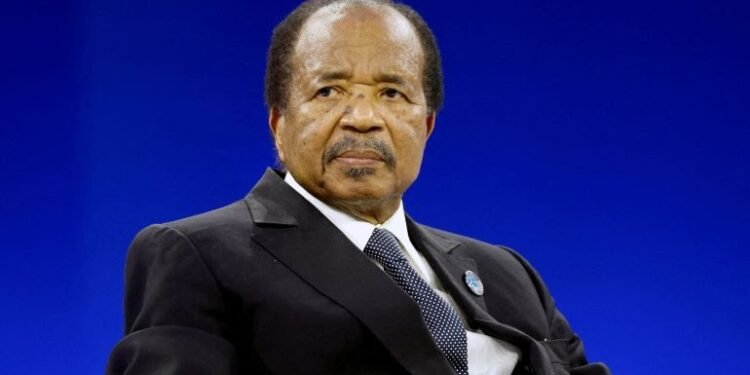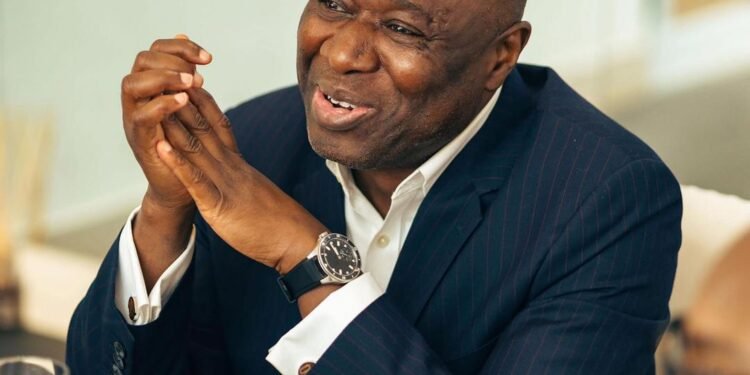Ghana is losing billions of dollars from its oil and gas resources due to an“opaque and exploitative”petroleum law that favours foreign oil companies at the expense of national interest, the Centre for Natural Resources and Environmental Management (CNREM) has warned.
In a statement shared with the Vaultz News, the Chief Executive Officer of CNREM, Solomon Kwawukume, accused foreign oil contractors operating in the Jubilee Field of manipulating production costs and evading taxes through loopholes in Ghana’s fiscal regime under Act 919 (Petroleum Exploration and Production Act).
Mr. Kwawukume described the situation as a“national economic tragedy”that continues to deprive the country of fair value for its hydrocarbon wealth.
“The FOCs in our largest oil field Jubilee, British firmTullow Oil Plc, American firm Kosmos Energy, and Petro SA from South Africa have been bleeding Ghana of billions of oil revenue and refusing to pay the correct taxes.
“Yet, these very FOCs are the ones our current government has signed an MOU with to extend their production license up to 2040.”
Mr. Solomon Kwawukume, Chief Executive Officer of CNREM
The CNREM boss expressed shock that the same companies accused of financial irregularities and under-reporting profits have been rewarded with a new memorandum of understanding (MoU) to extend their operations for another 15 years, allegedly in exchange for a promise to invest $2 billion in theJubilee Field.
He questioned the credibility of that investment pledge, noting that“the Jubilee Field is already producing efficiently”and that the announcement could be a strategic ploy to inflate capital expenditure, which would ultimately reduce taxable profits.

“Who investigates and confirms that $2 billion will actually be invested in the field?
“This is a clever strategy by the partners to inflate their development costs, which are tax-deductible, thereby understating profits and drastically lowering taxes payable to Ghana.”
Mr. Solomon Kwawukume, Chief Executive Officer of CNREM
Mr. Kwawukume accused certain presidential advisers and bureaucrats of enabling this situation, either through ignorance of complex international oil accounting or deliberate collusion.“They do not want the President to know the truth about how Ghana is being shortchanged,” he added.
Ghana’s Diminishing Share

Citing data from the Ministry of Energy and public records, Mr. Kwawukume said the country’s share of oil revenue from the Jubilee Field between 2010 and 2020 amounted to only $4.73 billion, out of total earnings of $23.3 billion representing a mere 20.3 percent.
He described this as“a humiliating return for a sovereign state that owns the resource,”blaming it on Ghana’s adoption of the Hybrid Royalty Tax System, which replaced the globally recognised Production Sharing Agreement (PSA) framework used across 34 other African oil-producing nations.
The World Bank and IMF, he said, project that Ghana will earn about $19–20 billion from Jubilee over the project’s lifetime ending in 2036.
However, CNREM’s simulations under a PSA model suggest potential earnings of $72 billion, an opportunity cost of $52 billion lost to the nation under the current fiscal regime.
“We signed contracts under predatory laws that we ourselves enacted to enable our borrowing sprees.
“If we continue with this bogus, garbage Act 919, Ghana will lose $52 billion from the Jubilee Field alone.”
Mr. Solomon Kwawukume, Chief Executive Officer of CNREM
Alleged Tax Evasion and Political Interference

Mr. Kwawukume further revealed that CNREM, acting as a whistleblower, had uncovered what it described as a $3.2 billion tax evasion scheme by the Jubilee partners, allegedly through inflated capital costs and accounting irregularities.
He said that after the Ghana Revenue Authority (GRA) investigated and confirmed the findings, it filed a case at the Economic and Financial Crimes Division of the Accra High Court on January 23, 2023, demanding the recovery of taxes, penalties, and interest totaling over $6 billion.
However, he claimed that political interference derailed the process.
“Tullow and its partners ran to the Jubilee House to seek presidential intervention.
“Allegedly, the then-Finance Minister, Ken Ofori-Atta, directed GRA to withdraw the lawsuit from court, fearing that the ongoing IMF bailout negotiations might be affected.”
Mr. Solomon Kwawukume, Chief Executive Officer of CNREM
The companies later sought arbitration at the International Chamber of Commerce (ICC) in London, arguing that Ghana’s claim was time-barred under statute of limitation.
But, according to CNREM, the case was quietly dropped after GRA partially paid court fees and the oil companies realised their legal position was weak.
Mr. Kwawukume said,“From 2024 to date, the gargantuan amount of over $6 billion in taxes and penalties has not been collected by GRA,”alleging that“top officials were flown abroad by the partners with incentives to silence them.”
Calls for Legislative Reform

Mr. Kwawukume called for an immediate repeal of Act 919 and its replacement with a Production Sharing Agreement framework, which ensures that resource ownership remains with the state while contractors receive a fair share of production.
“[The] RESET is here. Act 919 should be repealed, and the MOU to extend the production license to 2040 must not go ahead.
“These partners have proven they cannot be trusted.”
Mr. Solomon Kwawukume, Chief Executive Officer of CNREM
He further urged the GRA to recover the $6 billion owed, stressing that the amount exceeds twice the $3 billion IMF bailout Ghana sought in 2022.
Mr. Kwawukume’s statement concludes with a direct appeal to President John Dramani Mahama to“reclaim Ghana’s sovereignty over her natural resources”and resist what he described as“predatory external interests masquerading as investors.”
“President Mahama should have no business with these partners in the name of attracting investment.
“If this MOU is ratified, it will only continue the plunder of our oil wealth.”
Mr. Solomon Kwawukume, Chief Executive Officer of CNREM
Civil society groups and policy analysts have long criticized the lack of clarity surrounding revenue flows from theJubilee Fieldand other offshore operations.
Growing scrutiny over the Jubilee extension deal demands more than words; it requires action. In the months ahead, the government must choose a new, equitable energy policy that guarantees Ghana’s natural wealth serves its people, not a privileged few.
READ ALSO:BoG’s $1.15bn FX Injection Sparks Clash with IMF and World Bank Over Cedi Stabilization























